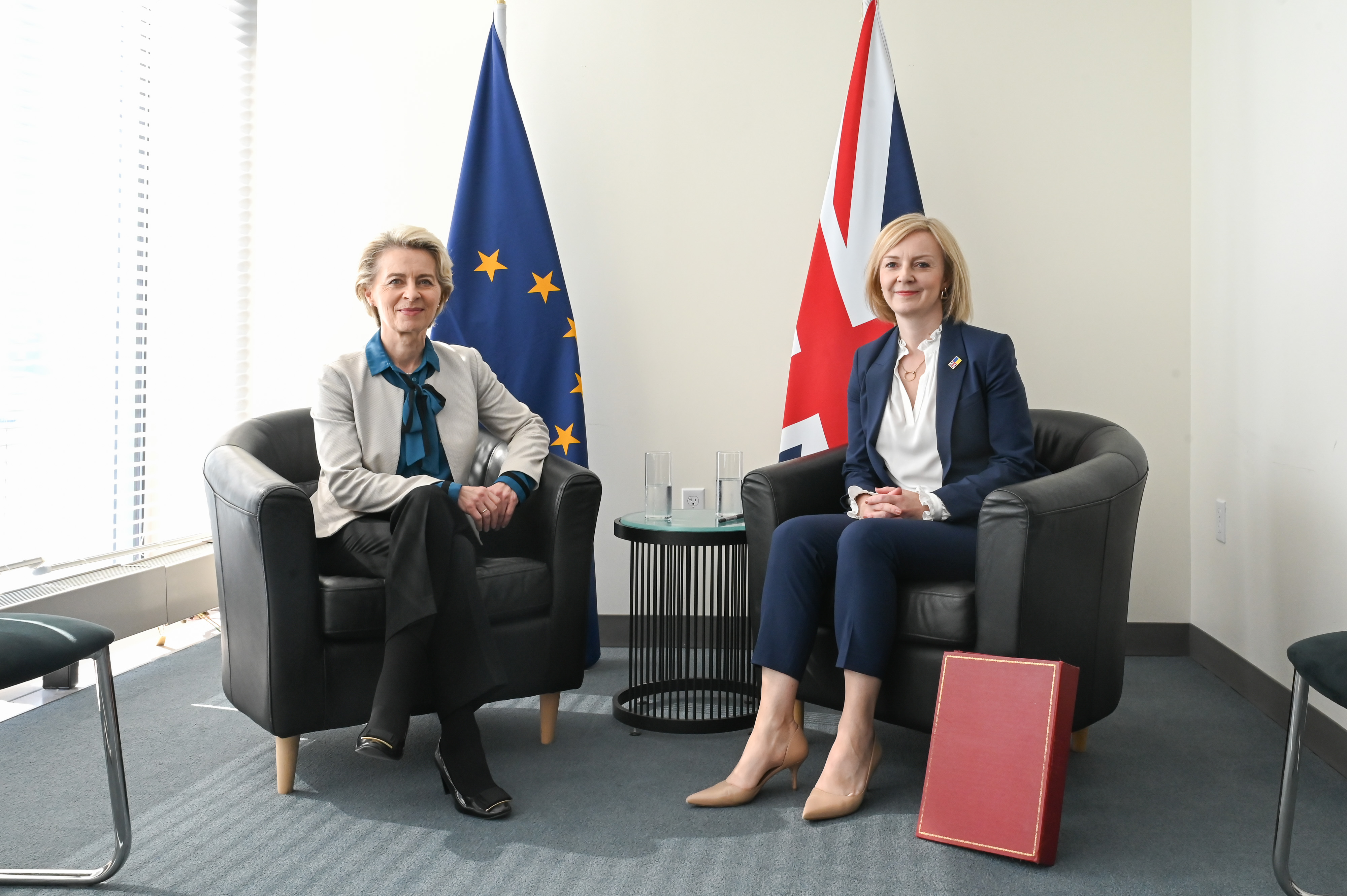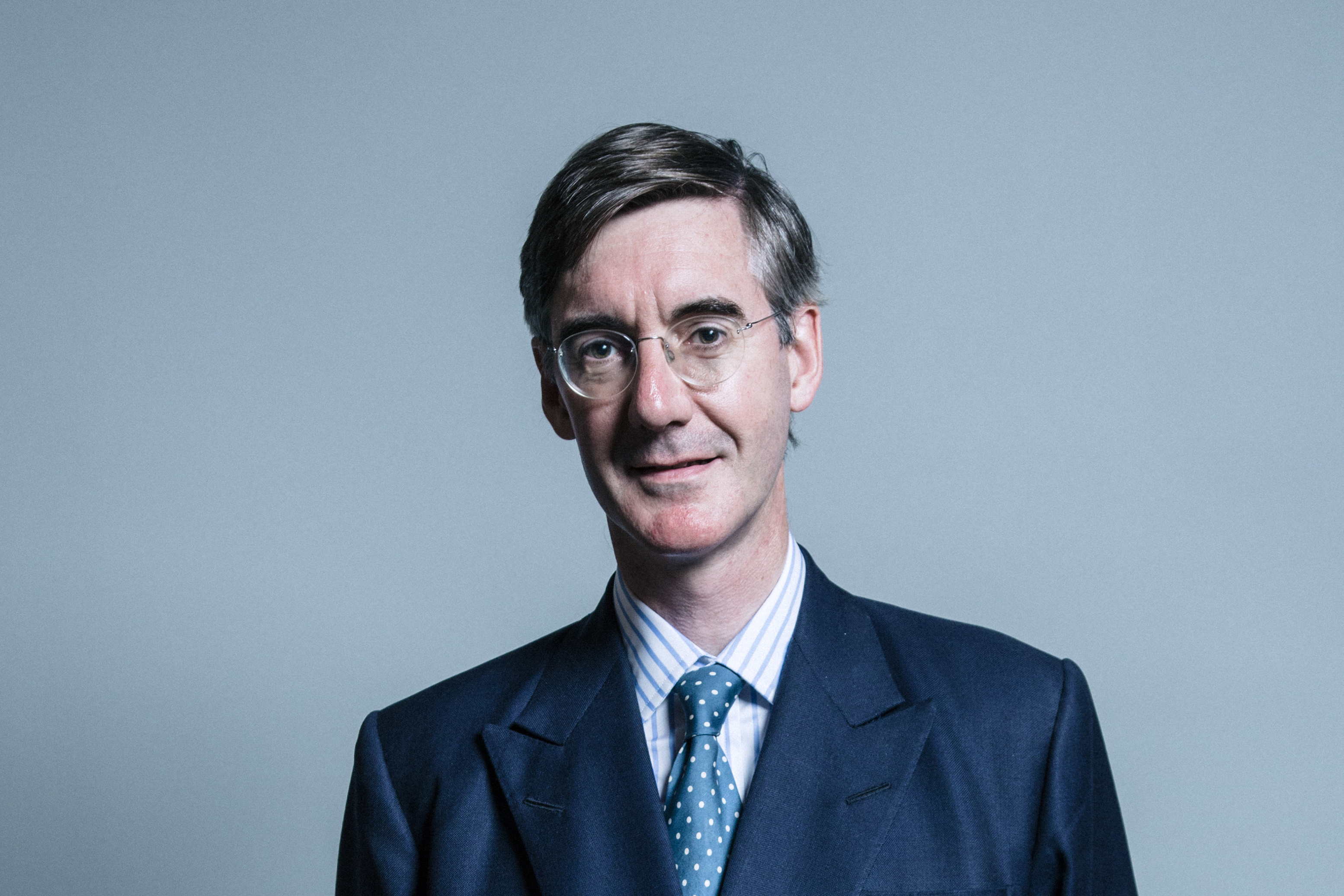Brexit & Beyond Newsletter
26 September 2022
Welcome to the 26 September 2022 Brexit & Beyond newsletter
Prime Minister Liz Truss held meetings last week with European Commission President Ursula von der Leyen, and US President Joe Biden. Reports suggest that the EU and UK may re-start negotiations on the Protocol on Ireland/Northern Ireland. The Retained EU Law (Revocation and Reform) Bill has been published and introduced to Parliament. The EU-UK Specialised Committee on Participation in Union Programmes met to discuss the UK’s participation in the Horizon programme.
Latest on EU-UK relations
Prime Minister Liz Truss and European Commission President Ursula von der Leyen met last Wednesday. They published a short joint statement, which says their discussions included the Protocol on Ireland/Northern Ireland. The Financial Times reports that the two leaders held their discussion in private, with no note takers in the room, “suggesting both sides wanted to test the scope for possible compromise.”

Prime Minister Liz Truss and European Commission President Ursula von der Leyen | Source: European Union 2022
The PM also met with US President Joe Biden. The UK Government statement reads, “On the Northern Ireland Protocol, the Prime Minister and President Biden both agreed that the priority must be protecting the Belfast (Good Friday) Agreement and preserving the gains of peace in Northern Ireland.” Politico reports comments from a US official that the PM “sounded a constructive note about her arrangements with both the European Union and the Republic of Ireland…There was a suggestion that there should be able to be a way forward here and now we have to see whether that plays out.” Some media, including the Financial Times, have reported that the Prime Minister would like to settle the Protocol dispute before the 25th anniversary of the Good Friday Agreement next Easter, which could lay the groundwork for a state visit from the US President to London in 2023.
Next steps
RTÉ's Tony Connelly reports that UK Foreign Minister James Cleverly and European Commission Vice-President Maroš Šefčovič are expected to have a phone call this week, which will “kick off an intensive round of technical and political talks”. The last time formal talks on the Protocol took place was in February. The deadline for the establishment of the Executive in Northern Ireland is 28 October, after which an election should be called, in line with legislation passed in February 2022.
Connelly writes that there may be scope for EU leaders to give their Brexit negotiators some room for manoeuvre. However, the Commission has also drafted a “Graduated Response List”, should the Prime Minister continue with the Northern Ireland Protocol Bill. The second reading of the Bill in the Lords is set to take place on 11 October. The BBC’s Brussels correspondent hears that the UK has requested an extension to respond to four further infringement proceedings which were launched by the EU in July, following the passing through the Commons of the NI Protocol Bill.
Meanwhile Leo Docherty has been confirmed as the Foreign Office Minister with responsibility for UK-EU relations, including the Northern Ireland Protocol. Guido Fawkes reports that Victoria Hewson is leaving the Institute of Economic Affairs to become a special adviser on Northern Ireland in the Foreign Office.
Retained EU Law (Revocation and Reform) Bill
The UK Secretary of State for Business, Energy and Industrial Strategy Jacob Rees-Mogg introduced the Retained EU Law (Revocation and Reform) Bill to Parliament on 22 September. Retained EU law refers to EU law (as it was on 31 December 2020) which was converted into UK domestic law by the EU (Withdrawal) Act in 2018. This aimed to provide legal certainty in the immediate period following the UK’s exit from the EU. It is also sometimes referred to as a ‘copy and paste’ of EU law onto UK statute books.

Secretary of State for Business, Energy and Industrial Strategy Jacob Rees-Mogg | Source: UK Parliament
The Bill would end the special status of retained EU law, which the Government says “will enable [it] to remove years of burdensome EU regulation in favour of a more agile, home-grown regulatory approach that benefits people and businesses across the UK.” Business Secretary, Jacob Rees-Mogg said, “The Brexit Freedoms Bill will remove needless bureaucracy that prevents businesses from investing and innovating in the UK, cementing our position as a world class place to start and grow a business.” [UK Government press release on the Retained EU Law Bill]
The Bill would “sunset” the majority of retained EU law so it expires on 31 December 2023, unless preserved. Ahead of this date, the Minister states that Government Departments and the Devolved Administrations “will determine which retained EU law can be reformed to benefit the UK, which can expire, and which needs to be preserved and incorporated into domestic law in modified form.” The principle of supremacy of EU law will no longer apply and the Bill would “reinstate domestic law as the highest form of law on the UK statute book.” The Bill would also create powers to make secondary legislation “so that retained EU law or assimilated law can be amended, repealed and replaced more easily.” [Minister's written statement to Parliament]
Commentary
Dr Sylvia de Mars, lecturer in EU and comparative law at Newcastle University, writes that her fears have “by and large been confirmed” with the Bill’s proposals, although “there are some nuances that might be exercised helpfully to limit the damage done by this Bill”. She points out that the UK Parliament did already vote to keep this body of law, and the UK also participated in the law-making process while a member of the EU. She highlights that the Bill would get rid of the laws without parliamentary scrutiny - the new process “sidelines Parliament completely”.
Jonathan Jones, former head of the UK Government legal department, argues the Bill is “a very bad way to legislate...the Bill is very concerning from the point of view of both legal certainty and democratic accountability.” George Peretz KC, barrister at Monckton Chambers, adds that “the legislation at issue includes really important areas: environmental protection, consumers’ and workers’ rights; product safety; etc.” Peretz has published a Twitter thread on Ministers’ rule-making powers under the Bill. The Hansard Society has penned a Twitter thread on the delegated powers in the Bill, saying “Ministers are again seeking broad powers but provisions for parliamentary scrutiny are better than they could have been”.
Devolution
The UK Government also states, “Consistent with the government’s approach to Brexit policy, the Bill will apply to the entirety of the UK, enabling joint working between the UK government and devolved administrations, and ensuring everyone can access the benefits of Brexit to stimulate economic growth, innovation, and job creation across the Union.” The Scottish Cabinet Secretary for Constitution, External Affairs and Culture Angus Robertson MSP has written to Jacob Rees-Mogg expressing concern about the Bill. He writes, “This bill puts at risk the high standards people in Scotland have rightly come to expect from EU membership. You appear to want to row back 47 years of protections in a rush to impose a deregulated, race to the bottom, society and economy.” He contends that the Bill “represents a significant further undermining of devolution”, and to allow UK Government ministers to act in devolved policy areas without the consent of Scottish Ministers/Scottish Parliament “is in direct contradiction to devolution and, in particular, the Sewel convention.”
Sylvia de Mars points out that “even with all implementing secondary legislation falling away, the Bill does not have this effect on Northern Ireland secondary legislation.” She suggests this could be to do with the ‘keeping pace’ requirements in the Protocol, as well as potentially the UK Government’s Article 2 commitment to “no diminution of rights, safeguards and equality of opportunity” in Northern Ireland post-Brexit.
Horizon dispute
The EU-UK Specialised Committee on Participation in Union Programmes, established under the Trade and Cooperation Agreement (TCA) met on 22 September. The EU has not signed off on the UK’s participation, linking it with the ongoing dispute over the Protocol. The meeting was co-chaired by officials from the UK Government and European Commission; representatives from the devolved administrations and EU member states also attended. The UK Government stated that it again requested “that the EU fulfil its obligation to finalise the UK’s association to EU Programmes after 16 months of delays. It is regrettable that the EU continues to decline this request.” It views the delay as a breach of the TCA and says it is “now urgently considering next steps.”
Politico reports that the UK is accusing the EU of increasing UK energy bills, by blocking a framework for electricity trading. Previously the UK was a member of the EU single energy market. The UK Government thinks the EU is also delaying this because of the Protocol dispute. The European Commission says it is “collaborating openly with the UK.”
Other news
- Following on from meeting other local party leaders, Secretary of State for Northern Ireland Chris Heaton-Harris met SDLP leader Colum Eastwood on Thursday 22 September.
- The Scottish Constitution, Europe, External Affairs and Culture Committee has published a report on the impact of Brexit on devolution. It includes a chapter on the Protocol on Ireland/Northern Ireland which notes that “dynamic alignment between NI and the EU is enormously complex and challenging especially for NI businesses in terms of awareness of the rules that apply in NI, for production and for sale of goods.” It says the Scottish Government’s commitment to align with EU law is also “likely to be complex and challenging”. The Committee concludes that there are “fundamental concerns which need to be addressed by the Scottish Parliament in relation to how devolution works outside the EU.” The Centre on Constitutional Change recently published an explainer and video on Brexit and devolution.
- Senedd Research has published an interactive explainer of the Northern Ireland Protocol Bill. The Senedd must soon decide whether to give formal consent to the Bill. The Scottish Government believes that the Scottish Parliament should not consent to the Bill and does not intend to lodge a consent motion. According to the Sewel Convention, when the UK Parliament is legislating on matters within the devolved competence of the administrations of Northern Ireland, Wales, and Scotland, the Government should “not normally” do so without the consent of the devolved administration. In June 2022, the UK Government confirmed it has legislated without consent from the devolved administrations on 11 occasions since December 2019, mostly relating to EU exit.




